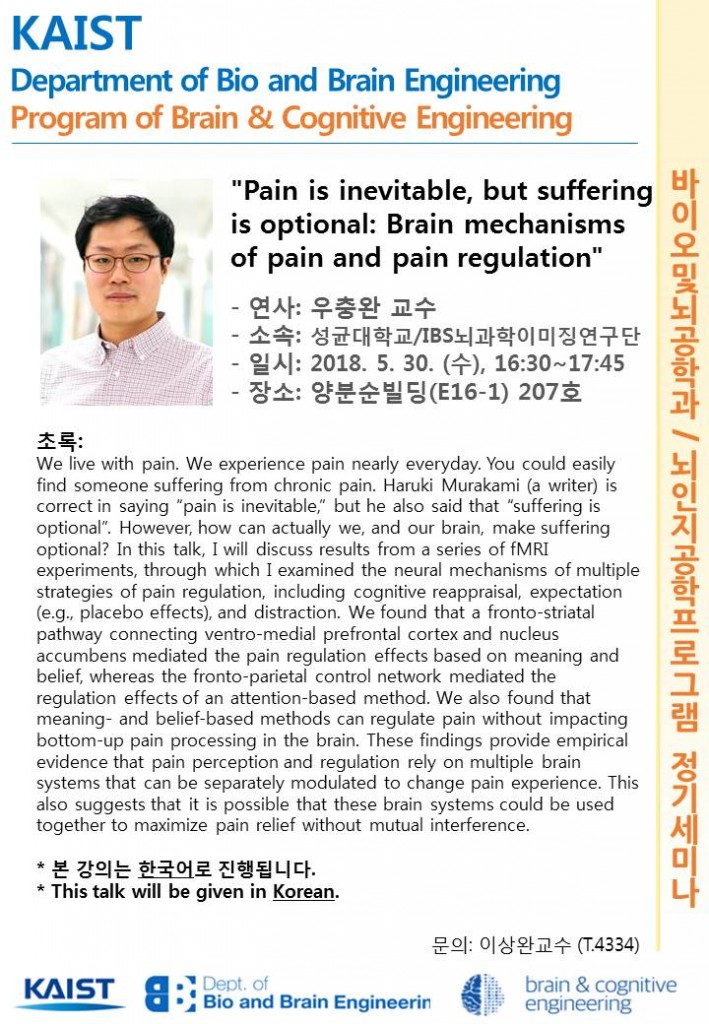| 연사 | 우충완 교수 |
|---|---|
| 소속 | 성균대학교/IBS뇌과학이미징연구단 |
| 일시 | 2018. 5. 30. (수), 16:30~17:45 |
| 장소 | 양분순빌딩(E16-1) 207호 |

A Department colloquium will be held on May 30th(Wed.)
1. Title : “Pain is inevitable, but suffering is optional: Brain mechanisms of pain and pain regulation”
2. Speaker : Prof. Choong-Wan Woo, Ph.D. (Dept of Biomedical Engineering, Sungkyunkwan University / IBS Center for Neuroscience Imaging Research)
3. Date & Time : 16:30~17:45, May 30th(Wed.)
4. Venue : Rm#207, YBS Bldg(E16-1)___a.k.a Auditorium
Abstract
We live with pain. We experience pain nearly everyday. You could easily find someone suffering from chronic pain. Haruki Murakami (a writer) is correct in saying “pain is inevitable,” but he also said that “suffering is optional”. However, how can actually we, and our brain, make suffering optional? In this talk, I will discuss results from a series of fMRI experiments, through which I examined the neural mechanisms of multiple strategies of pain regulation, including cognitive reappraisal, expectation (e.g., placebo effects), and distraction. We found that a fronto-striatal pathway connecting ventro-medial prefrontal cortex and nucleusaccumbens mediated the pain regulation effects based on meaning and belief, whereas the fronto-parietal control network mediated the regulation effects of an attention-based method. We also found that meaning- and belief-based methods can regulate pain without impacting bottom-up pain processing in the brain. These findings provide empirical evidence that pain perception and regulation rely on multiple brain systems that can be separately modulated to change pain experience. This also suggests that it is possible that these brain systems could be used together to maximize pain relief without mutual interference.






